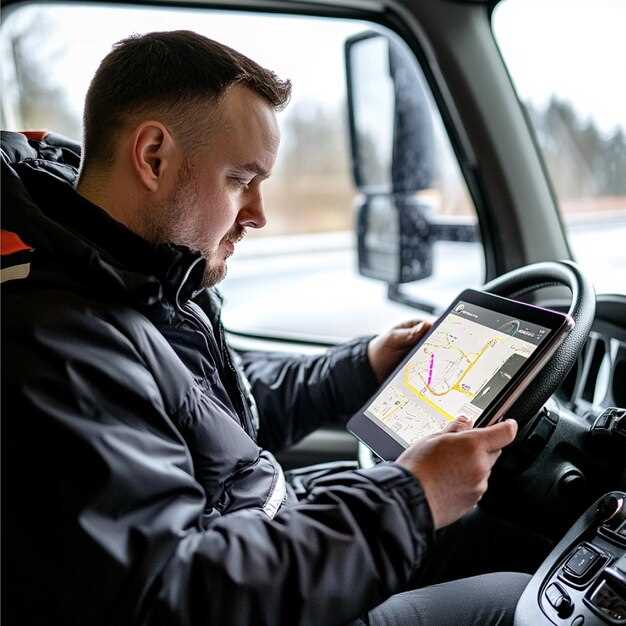

In 2023, the efficiency of a fleet operation hinges significantly on the technology employed to manage it. One of the most critical components of fleet management is a reliable, advanced GPS system. As businesses face increasing demands for efficiency and reliability, the right GPS technology can streamline operations, enhance navigation, and reduce operational costs. This makes the selection of the best GPS systems for fleet trucks more essential than ever.
Modern GPS systems for fleet trucks offer a range of features that go beyond basic navigation. They incorporate real-time tracking, route optimization, and analytics to monitor vehicle performance. Companies are now able to leverage these systems to ensure their drivers adhere to safe driving practices, minimize fuel consumption, and improve overall service delivery. With numerous options available, identifying the best GPS system tailored for fleet trucks becomes a pivotal task for any logistics manager.
As we delve into the top contenders for the best GPS systems for fleet trucks in 2023, we will evaluate various factors, including functionality, user experience, cost-effectiveness, and customer support. With a multitude of choices on the market, our goal is to highlight solutions that not only meet current needs but also pave the way for future fleet advancements. Choosing the right GPS system is not just a matter of convenience; it’s an investment in the sustainability and efficiency of your fleet operations.
Top Features to Look for in Fleet GPS Solutions
When selecting a GPS system for fleet trucks, it is crucial to evaluate several key features that enhance operational efficiency and provide comprehensive tracking capabilities. Here are the top features to consider:
Real-Time Tracking: A robust GPS solution should provide real-time location updates, allowing fleet managers to monitor vehicle movements instantaneously. This feature enables efficient route management and timely responses to unforeseen circumstances.
Geofencing: Look for systems that allow you to create virtual boundaries around specific areas. Geofencing alerts managers when vehicles enter or exit designated zones, enhancing security and ensuring compliance with route protocols.
Driver Behavior Monitoring: Advanced GPS tools include features that track driver behavior by monitoring speed, harsh braking, and acceleration. This data helps identify areas for improvement, promoting safer and more economical driving practices.
Route Optimization: A top-notch GPS solution should offer route optimization capabilities. This feature calculates the most efficient routes based on real-time traffic data, helping reduce fuel consumption and delivery times.
Maintenance Tracking: Integrating maintenance alerts and scheduling into your GPS system can streamline fleet management. This feature ensures that vehicles are maintained regularly and remain in optimal condition, reducing breakdowns and prolonging vehicle life.
Custom Reporting: The ability to generate customizable reports is vital for analyzing performance metrics. A good GPS system should allow fleet managers to create reports on fuel usage, mileage, and driver performance to facilitate better decision-making.
Mobile Access: With the increasing reliance on mobile technology, a GPS solution should provide access via mobile devices. This feature enables fleet managers to track and manage their fleets on the go, enhancing flexibility and responsiveness.
Integration Capabilities: Consider systems that can integrate with other software solutions, such as accounting or HR systems. This interoperability enhances data sharing across platforms, promoting overall efficiency in fleet operations.
User-Friendly Interface: The effectiveness of a GPS system is often determined by its usability. A straightforward, intuitive interface ensures that fleet managers and drivers can quickly adapt and leverage the full range of features without extensive training.
By focusing on these critical features, fleet managers can select a GPS solution that meets their operational needs and enhances overall fleet performance in 2023.
Comparison of Leading GPS Systems for Fleet Management

As the demand for efficient fleet management continues to rise, selecting the right GPS system becomes crucial for optimizing operations. Below, we compare some of the leading GPS systems that cater specifically to fleet management needs, focusing on key features, benefits, and unique offerings.
1. Geotab
Geotab stands out for its robust data analytics capabilities and comprehensive reporting features. This system provides real-time tracking and vehicle diagnostics, allowing fleet managers to monitor vehicle health and performance. Its open platform supports third-party applications, making it customizable to specific needs. The integration of telematics and compliance management helps fleets remain efficient and compliant with industry regulations.
2. Verizon Connect
Verizon Connect excels in providing a wide array of tools for managing fleet operations, including routing, driver behavior analysis, and fuel management. One of its notable features is the ability to optimize routes based on real-time traffic conditions, which can significantly reduce fuel costs and improve delivery times. The mobile app enhances accessibility for fleet managers and drivers alike.
3. Fleet Complete
Fleet Complete is recognized for its user-friendly interface and advanced asset tracking capabilities. It offers features such as temperature monitoring for fleets that transport perishable goods, which is essential for maintaining product integrity. Enhanced safety features, including driver coaching tools and vehicle maintenance reminders, contribute to improved overall fleet performance.
4. Samsara
Samsara combines GPS tracking with advanced telematics, making it a versatile choice for fleet management. Its dashboard provides insights into vehicle location, speed, and idling times, enabling managers to make informed decisions. Additionally, Samsara’s integration with AI-powered dash cams enhances safety by providing video evidence in the event of accidents, promoting accountability among drivers.
5. Teletrac Navman
Teletrac Navman offers a powerful suite of fleet management tools, including compliance tracking for ELD mandates. The platform enables detailed tracking and reporting of driver performance, which can aid in reducing insurance costs. Its customizable alerts and notifications keep fleet managers informed of critical events, enhancing operational efficiency and safety.
In conclusion, the right GPS system for fleet management depends on specific business needs and operational goals. By comparing these leading solutions, fleet managers can select a system that not only meets their immediate requirements but also supports long-term growth and efficiency.
Integrating GPS Technology with Fleet Operations

Integrating GPS technology into fleet operations can significantly enhance efficiency and productivity. The precision of GPS allows fleet managers to track vehicles in real time, enabling informed decision-making regarding routing and scheduling. By utilizing advanced GPS systems, companies can minimize idle time and reduce fuel consumption, leading to significant cost savings.
GPS technology facilitates better communication between drivers and fleet managers. With real-time tracking, managers can monitor delivery statuses, reroute vehicles in case of traffic disruptions, and ensure timely arrivals. This increased visibility fosters improved customer service, as clients can receive accurate delivery updates based on real-time data.
Moreover, integrating GPS with fleet management software provides an array of analytics tools. These tools analyze vehicle performance, driver behavior, and maintenance needs, allowing for proactive management. By accessing comprehensive data on driving patterns, companies can implement training programs to promote safe driving practices, ultimately reducing accidents and operational costs.
Additionally, GPS technology supports compliance with regulatory requirements. Fleet operators can easily monitor driving hours and ensure adherence to legal standards, minimizing the risk of penalties. This integration streamlines reporting processes and supports transparency within the organization.
In conclusion, the integration of GPS technology into fleet operations transforms how companies manage their logistics. With enhanced tracking capabilities, improved communication, and valuable data insights, businesses can optimize their fleets, ensuring they operate efficiently and effectively.